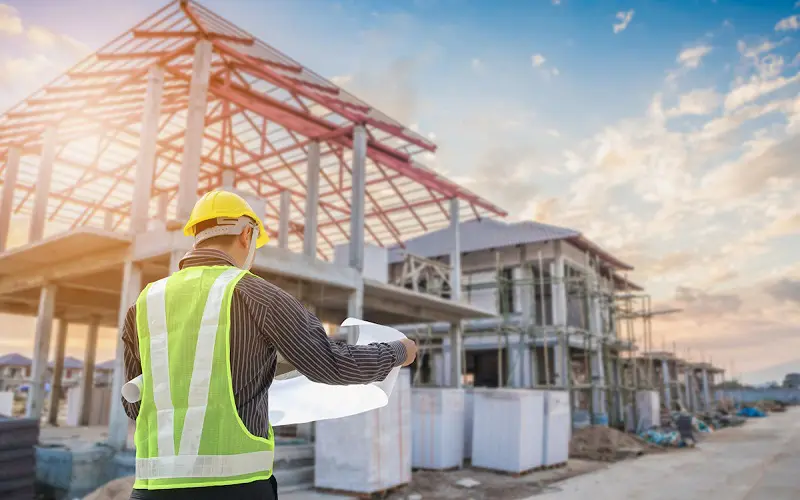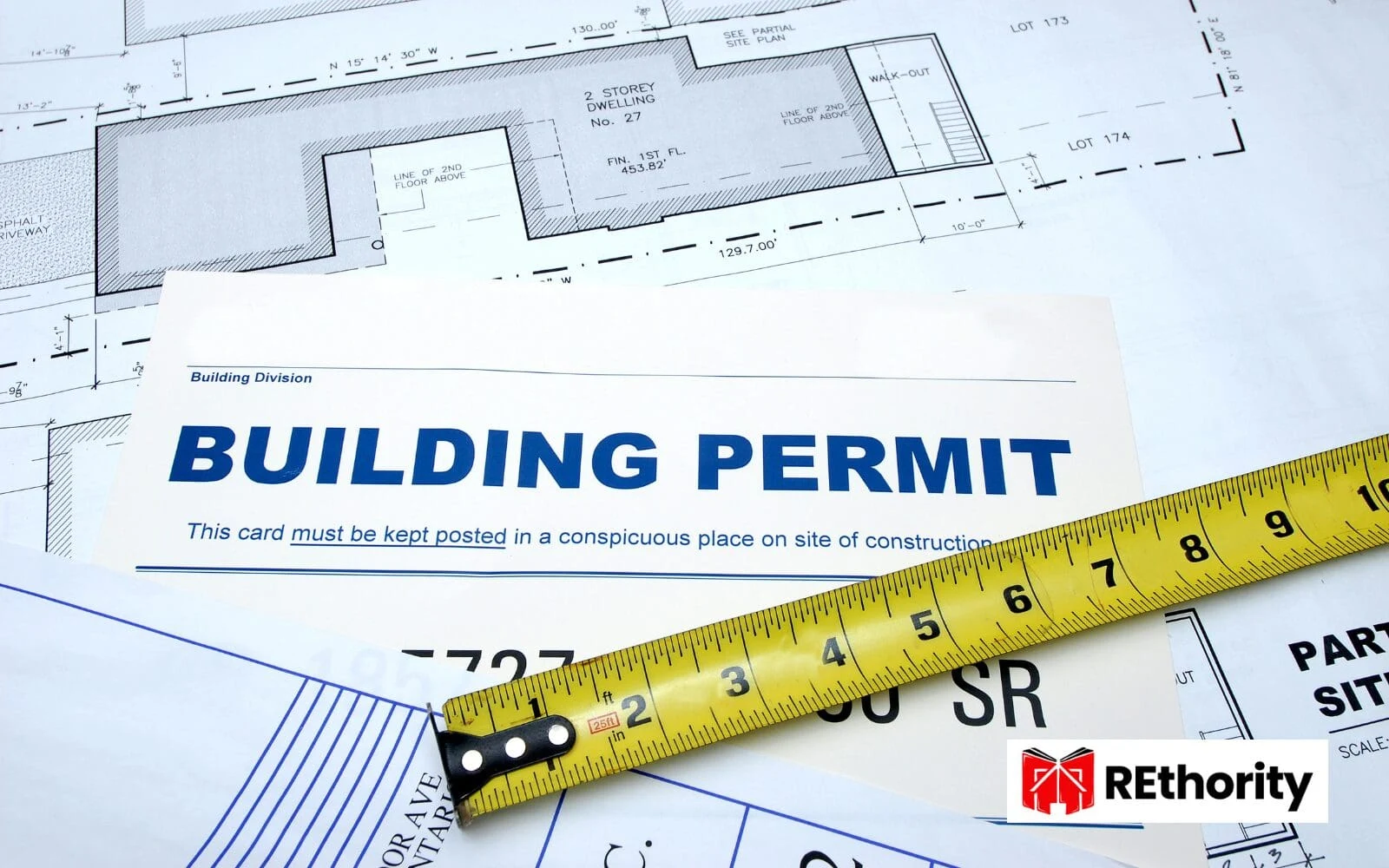Homeowners and contractors alike should be aware of who is responsible for pulling permits when embarking on a renovation or repair project.
Knowing the permit process, common reasons for denial, how to avoid delays in the permitting process, and its associated benefits can help ensure that your home improvement projects run smoothly.
Whether you are a homeowner looking to make some changes yourself or hiring a contractor to do it all for you, understanding who is responsible for pulling permits will help protect both parties from potential legal issues down the line.
In this guide, we’ll explain everything you need to know about who is responsible for pulling permits so that your project goes off without any hiccups!
Who is Responsible for Pulling Permits?

There are many benefits to getting proper permits for your home improvement projects. First, you can avoid fines from local authorities due to non-compliance with regulations.
Second, you can protect yourself against potential liability issues if something goes wrong. Third, you can ensure that your project meets safety standards and codes.
Fourth, you can reduce delays caused by having incorrect or incomplete paperwork. Fifth, you can have peace of mind that your work has been done correctly and professionally.
Sixth, you can allow inspections during different stages of construction, which helps protect both you and your contractor. Seventh, you can potentially increase the resale value of your property due to compliance with current building codes at the time of sale.
It’s important to understand who is responsible for pulling permits when it comes to home improvement projects.
Homeowners
Homeowners are ultimately responsible for obtaining permits when undertaking a construction project on their property.
This includes obtaining the necessary documentation, submitting an application and fees to the local government agency responsible for issuing permits, and ensuring that all regulations and codes are met before starting any construction projects.
Contractors
Homeowners may hire contractors to help with the permit application process. They should have experience dealing with local governments as well as knowledge of regulations and codes that must be followed in order to obtain a permit.
It is important for contractors to ensure that all paperwork is accurate and up-to-date prior to submitting it for approval.
Local Governments
Local governments are responsible for issuing permits after reviewing applications submitted by homeowners or contractors.
They will review documents such as building plans, drawings, blueprints, etc., in order to determine if they meet all applicable regulations and codes before approving or denying the request.
If there are any discrepancies or insufficient information provided, then the permit may be denied until corrections can be made or additional information can be provided.
Understanding the Permit Process

Depending on the scope and complexity of your project, you may need to obtain multiple permits from different government agencies.
Common types of permits include building, electrical, plumbing, mechanical, and zoning permits.
Make sure to check with your local government agency for a full list of required permits before beginning any construction work.
Obtaining the Necessary Documentation
Before submitting an application for a permit, you will need to provide documentation such as plans or drawings that detail the proposed project.
You may also be asked to provide additional information, such as proof of ownership or insurance coverage. It is important to make sure all documents are accurate and up-to-date in order to avoid delays in the permit process.
Once all necessary documents have been gathered, it is time to submit your application along with any applicable fees. Depending on where you live, this can be done online or in person at your local government office responsible for issuing permits.
Be prepared for potential delays due to high demand or incomplete applications; however, if everything is submitted correctly, approval should come within a few weeks’ time frame, depending on each individual situation.
It’s important to understand the permit process before beginning any construction or renovation project, as failure to comply with local regulations and codes can lead to denied permits.
Knowing common reasons for denial can help ensure a smoother application process and quicker approval of permits.
Common Reasons for Denial of Permits

Permits are an important part of any construction project, and they must be obtained before beginning work.
It’s important to understand the common reasons for permit denial so that you can take the necessary steps to avoid delays in the process.
Unfortunately, permits can sometimes be denied due to various reasons. Here are some of the most common causes for permit denial:
Insufficient Documentation or Information Provided
When applying for a permit, it is essential that all necessary documentation and information is provided in order to ensure that the application process runs smoothly.
If there is insufficient documentation or information provided when submitting an application, this can lead to delays or even outright rejection of the permit request.
Non-Compliance with Local Regulations and Codes
Every local government has its own set of regulations and codes that must be followed when constructing anything on your property. If these regulations are not adhered to during the building process, then it could result in a denial of your permit request.
It’s important to research local laws prior to starting any projects on your property so you know what you need to do in order to obtain approval from authorities.
Permit applications may also be rejected if unsafe building practices or materials have been used during construction.
This could include using substandard materials such as flammable insulation or failing to adhere to safety standards such as having proper ventilation systems installed in buildings where hazardous chemicals are being stored.
In these cases, it is best practice for homeowners and contractors alike to use only high-quality materials that meet safety requirements when working on any type of project requiring a permit from local governments.
How to Avoid Delays in the Permit Process

Hire an Experienced Professional to Assist with the Application Process
Hiring a professional who is experienced in the permit process can help you avoid delays and ensure that your application is completed correctly.
A qualified contractor or architect will be familiar with local regulations and codes, as well as any other requirements for obtaining a permit.
They can also provide guidance on how to properly fill out the paperwork and submit it to the appropriate agency.
Ensure All Documentation is Accurate and Up-to-Date Before Submitting
It’s important to make sure all of your documentation is accurate before submitting it for review.
This includes plans, drawings, blueprints, surveys, etc., which must be up-to-date in order for your application to be approved quickly.
Make sure all documents are signed by authorized personnel before submitting them, so there are no delays due to missing signatures or incorrect information.
Before beginning any construction projects on your property, take some time to research local regulations and codes related to the project. This way, you can understand what types of permits may be required before starting work.
Having this information ready at hand when it comes time for submission will save you from wasting valuable time gathering additional materials after starting work onsite.
By taking the time to research local regulations and hiring an experienced professional, homeowners can ensure their permit process is completed quickly and efficiently.
The Benefits of Pulling Proper Permits for Homeowners and Contractors Alike

Pulling proper permits is essential for any construction project on your property.
Doing so provides numerous benefits to both homeowners and contractors alike, including increased safety standards, reduced risk of legal action from neighbors or local governments, and improved resale value of your home.
Increased Safety Standards on Your Property
Pulling the necessary permits ensures that all building codes are met when constructing a new structure or making alterations to an existing one.
This helps ensure that the structure is safe for use and meets all applicable regulations in terms of fire safety, electrical wiring, plumbing systems, etc.
It also helps protect against potential liabilities should something go wrong with the structure down the line due to improper construction methods or materials used during its initial build.
Reduced Risk of Legal Action from Neighbors or Local Governments
When you obtain proper permits before starting a construction project on your property, it shows that you have taken steps to comply with local regulations and codes set forth by your municipality.
This can help reduce the chances of being sued by neighbors who may be affected by noise levels or other disruptions caused by ongoing work at your residence.
It can also prevent costly fines imposed by local governments if they discover unpermitted projects taking place without their knowledge.
FAQs
Can a homeowner pull a building permit in Massachusetts?
Yes, a homeowner in Massachusetts can pull a building permit. The process is relatively straightforward and requires the homeowner to submit an application along with any necessary plans or drawings to their local building department.
Once approved, the homeowner will be issued a permit that allows them to begin construction on their project. It's important for homeowners to make sure they understand all of the requirements before beginning work as failure to comply may result in fines or other penalties.
Who can pull a permit in Massachusetts?
In Massachusetts, a homeowner can pull a permit if they are doing the work themselves. However, any major renovations or construction must be done by a licensed contractor who is registered with the state.
Additionally, all permits must be obtained from the local building department before beginning any work on your property. It's important to make sure that you have all of the necessary paperwork and documentation in order before starting any project so that it meets local regulations and codes.
Can anyone pull a permit in Florida?
Yes, anyone can pull a permit in Florida. However, the exact requirements and procedures vary depending on the type of work being done.
Generally speaking, permits are required for any construction or alteration to a home that involves electrical wiring, plumbing, structural changes or additions. Permits must be obtained from the local building department before beginning any work.
It is important to note that some projects may require additional permits from other agencies such as health departments or fire marshals.
It is always best practice to consult with an experienced contractor who understands local regulations and codes when undertaking any project requiring a permit in Florida.
Who can pull a permit in Michigan?
In Michigan, a homeowner can pull their own permit for certain types of work. This includes minor repairs such as replacing windows or doors, and installing new siding or roofing.
However, more complex projects like electrical wiring or plumbing must be done by a licensed professional with the appropriate permits obtained from the local municipality.
It is important to check with your local building department before starting any project to ensure you are following all applicable laws and regulations.
Conclusion
In conclusion, it is important to understand who is responsible for pulling permits when undertaking any home improvement project.
Not only can proper permitting help ensure the safety of your family and property, but it can also save you time and money in the long run.
If you are unsure of who is responsible for obtaining a permit or how to go about getting one, contact your local building department or hire a licensed contractor with experience in the permit process.
By understanding the requirements and taking steps to avoid delays in the permit process, homeowners and contractors alike can benefit from properly obtained permits.

